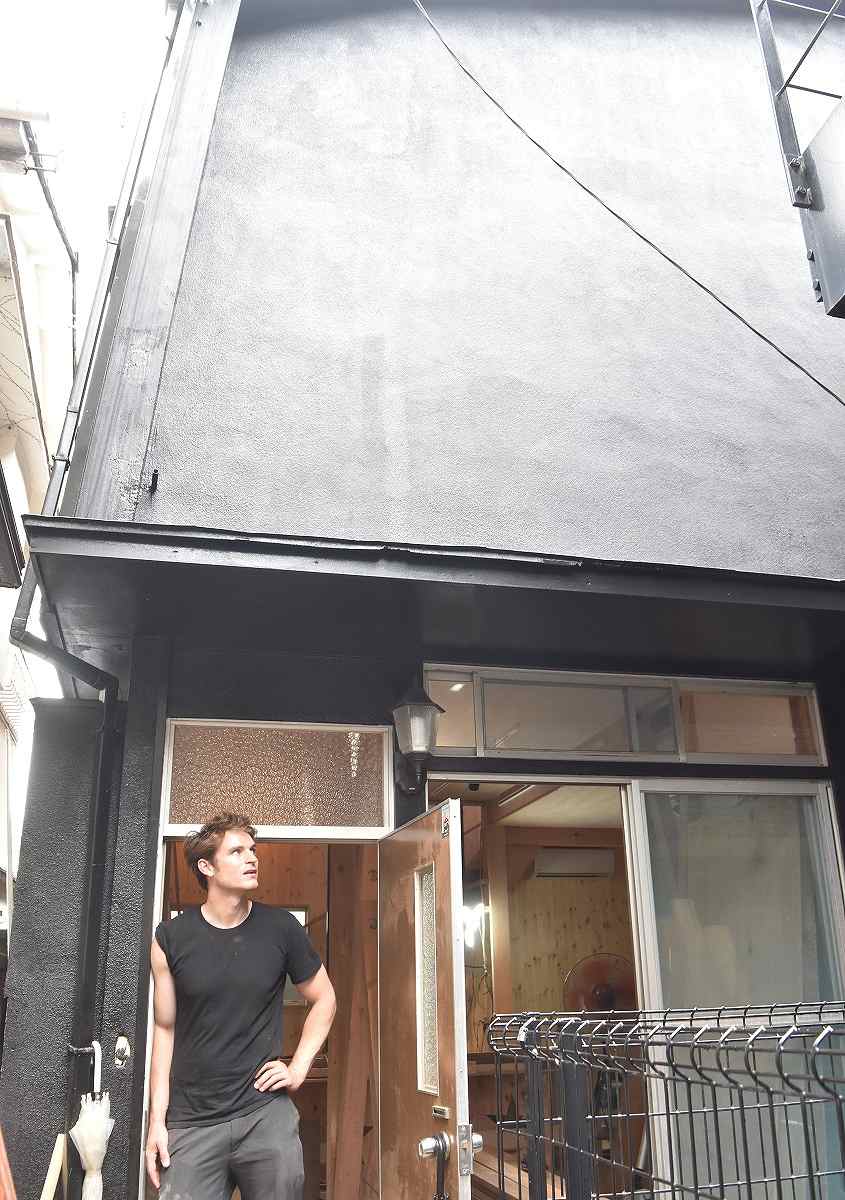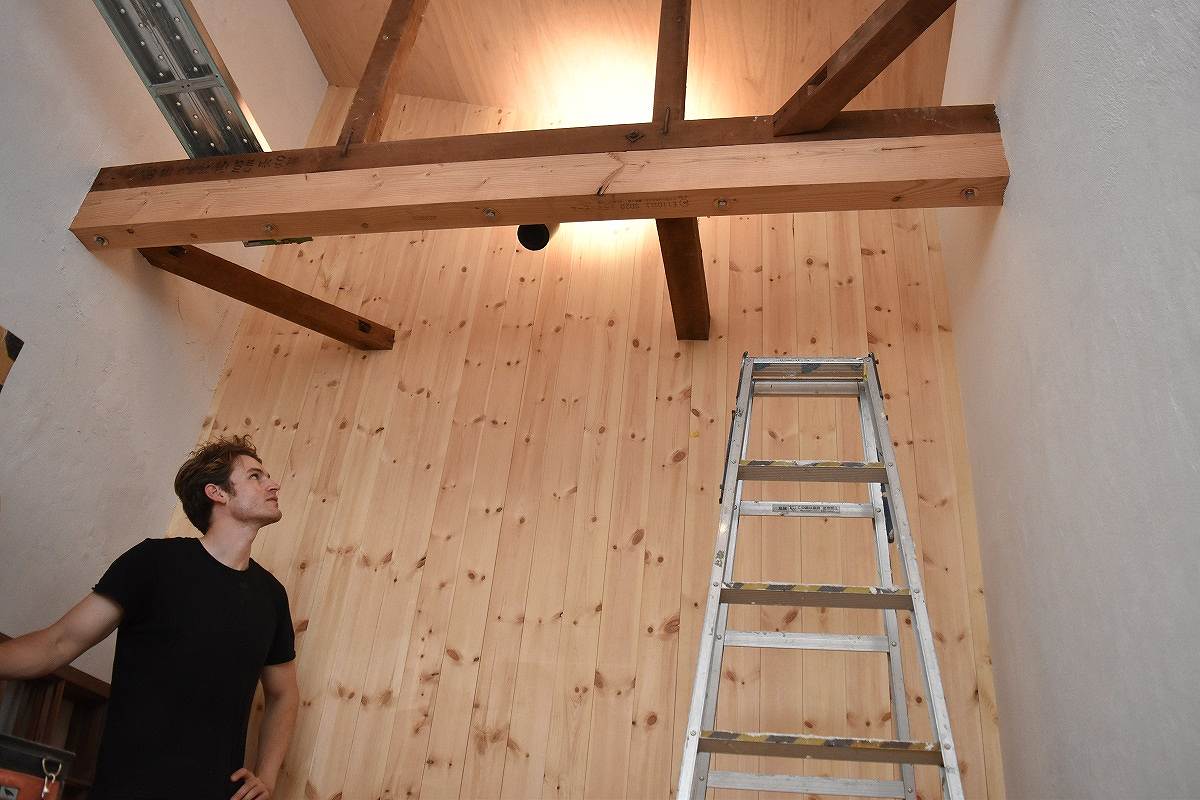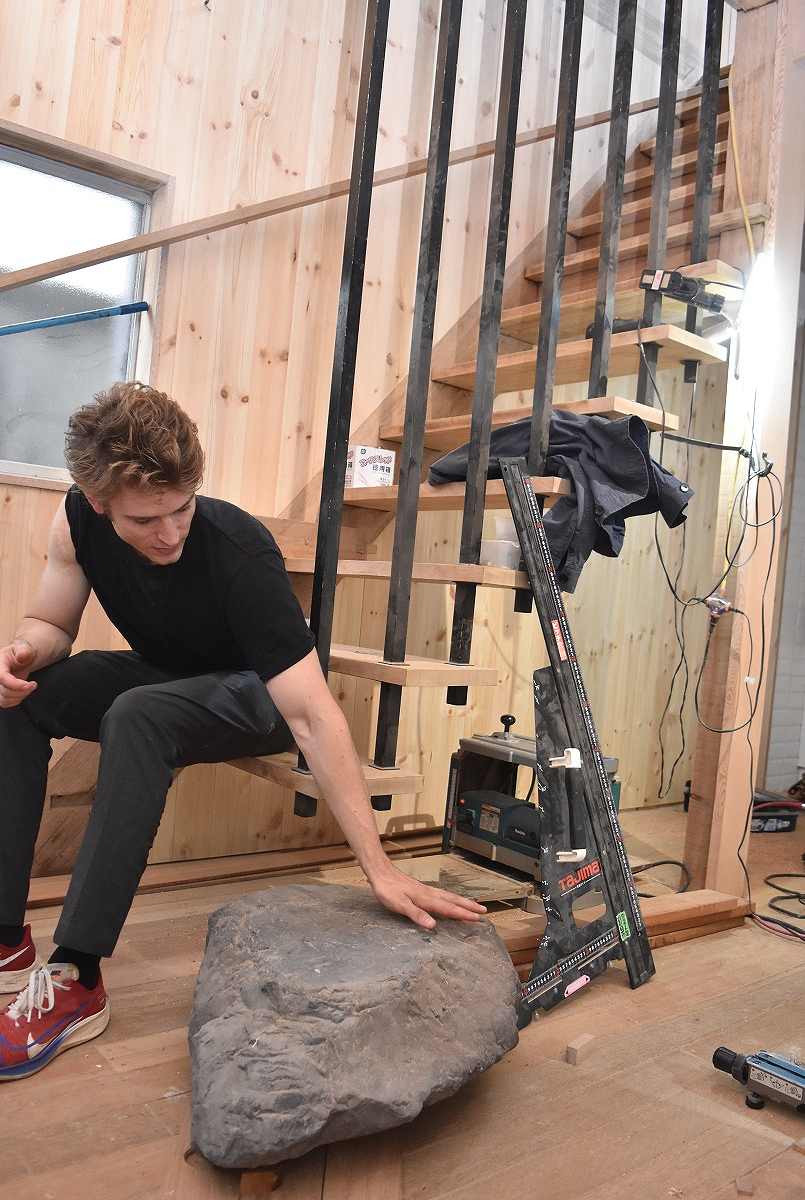Vacant Homes in Japan Earning Attention from Abroad; Increased Interest May Be Positive Step for Akiya Issue

Anton Wormann renovates 53-year-old house in Tokyo’s Nakano Ward.
6:00 JST, July 25, 2024
Vacant homes, called akiya in Japanese, are often regarded as a symbol of Japan’s shrinking population. However, they have been attracting growing interest among foreigners, as they are often affordable and feature elements of traditional Japanese architecture.
When Anton Wormann, 31, moved to Japan from Sweden in 2018, he had never heard of akiya, let alone imagined buying and renovating them. Now that he has learned that many such homes, which are livable if properly taken care of, are available for affordable prices, he buys these empty houses and renovates them. “Old Japanese houses are very attractive to overseas people,” he said.
Wormann, who lives in Tokyo, has recently been renovating a two-story wooden house in the city’s Nakano Ward. The cozy house, measuring about 75 square meters, is being transformed into short-term rental lodging with a bright, Scandinavian style, but Japanese architectural elements, such as beams and shoji sliding doors, are still retained throughout. A stone he placed as the first step of the wooden staircase is one of his favorite parts.

The ceiling and fusuma sliding doors are removed to create openness in a room.
The house had been vacant for around three years and cost him only about ¥20 million, despite being just a six-minute walk from a subway station in a residential area. Its advanced age — it was built in 1971 — did not deter him at all from buying it.
“It is a part of the culture in Sweden to renovate, live in and take good care of old houses. It’s not uncommon to see houses built 200-300 years ago,” Wormann said. Growing up in a wooden house built 120 years ago in a suburb of Stockholm, Wormann watched his parents renovating the house.
His fashion model job brought him to Japan in 2015. He fell in love with the country and came back after obtaining a working visa in 2018. He had long been greatly impressed by the traditional techniques used by miyadaiku, Japanese shrine and temple carpenters, as well as traditional elements of Japanese buildings such as shoji, earthen walls, tatami mats and tiled roofs.
However, he learned that while many old houses are left abandoned in Japan, new houses are being built one after another, which contrasted starkly with his own country. Wormann said, “I feel Japanese people like new stuff.” The fact that many vacant homes were sold for prices that wouldn’t even buy a parking lot in Sweden also came as a surprise to him, motivating him to buy and renovate them.

Anton Wormann explains the stone that is placed as a staircase’s first step.
He has purchased four akiya in Tokyo and Chiba Prefecture so far, splitting his time between renovating them and his fashion model job. One of the vacant houses he bought has become his own home, while the others serve as short-term rental lodgings. One of them is already in operation and attracts many overseas tourists, he said.
He understands the unique challenges Japanese houses face, such as earthquakes. But he said: “The Japanese language has a word, ‘mottainai’ [what a waste]. Japanese people should take better care of old houses.”
Foreigners like Wormann may offer hope for dealing with the serious issue of the growing number of akiya.
Tokyo-based PR consulting firm Parthenon Japan helps overseas people move to vacant homes in rural areas through its business “Akiya&Inaka.” The company is now receiving a flurry of inquiries from other countries, following a foreign media report on vacant homes.
Many potential buyers consider buying a vacant home in order to move to Japan or to have a second house. Houses with hand-carved transoms, which allow air flow, as well as shoji and retro lighting from the Showa era, are highly popular.
Parker J. Allen, 34, President and CEO of the firm, said: “There are many people who want to live in traditional Japanese houses. Vacant homes are popular because they can be obtained cheaply.”
Prof. Hiroko Saito of Yokohama City University, who is familiar with the issue of vacant homes, said: “If more and more people from abroad move into vacant houses, it could lead to discovering more local charm. Therefore, it is important to find ways for overseas people to mingle with local residents and share their discoveries.”
Top Articles in Society
-

Producer Behind Pop Group XG Arrested for Cocaine Possession
-

Man Infected with Measles Reportedly Dined at Restaurant in Tokyo Station
-

Man Infected with Measles May Have Come in Contact with Many People in Tokyo, Went to Store, Restaurant Around When Symptoms Emerged
-

Woman with Measles Visited Hospital in Tokyo Multiple Times Before Being Diagnosed with Disease
-

Australian Woman Dies After Mishap on Ski Lift in Nagano Prefecture
JN ACCESS RANKING
-

Producer Behind Pop Group XG Arrested for Cocaine Possession
-

Japan PM Takaichi’s Cabinet Resigns en Masse
-

Man Infected with Measles Reportedly Dined at Restaurant in Tokyo Station
-

Israeli Ambassador to Japan Speaks about Japan’s Role in the Reconstruction of Gaza
-

Videos Plagiarized, Reposted with False Subtitles Claiming ‘Ryukyu Belongs to China’; Anti-China False Information Also Posted in Japan
























